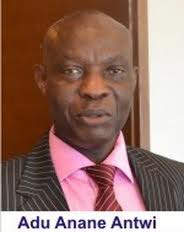The Director-General of the Securities and Exchange Commission (SEC), Mr. Adu Anane Antwi, has advocated the development of long-term investment plans as a sustainable means to achieving Ghana's development goals.
According to him, long-term investments are key components that drive economic growth and development of every country, and until Ghanaians stopped thinking about short-term investment plans, the country’s development agenda would remain short lived.
He said long-term planning and investment would not only generate an evolving fund for investors, but help in the development of the needed fixed assets including infrastructure and amenities for the country’s development.
Mr Antwi was addressing a media breakfast launch of the upcoming Ghana Pensions and Sovereign Funds Investment Forum (GPSFIF) on Thursday, which is scheduled for June this year and being organised by the Africonomie Ghana, a boutique marketing and communications services firm.
The forum would attract selected senior executives and create the platform for effective networking on contemporary investment, management and administration issues impacting pensions and sovereign funds investments in Ghana, and also discuss private equity and real estate as an asset class for institutional investors.
Mr Antwi said although economic development dwells mainly on advance capital market and long-term investment, the country’s market development efforts was currently being challenged by the high level of financial illiteracy among stakeholders.
Knowledge of the capital market especially is very low in the country and this directly affects the number of Ghanaians investing in the equity and bonds market, he said. He said there was therefore the need for regulators and operators to collectively step up the education drive to educate investors on how to maximise their investments using the capital market as an investment avenue.
According to him, capital markets enhance financial intermediation, increase mobilisation of savings, improve efficiency and volume of investments, and aid economic growth and development. The development of the capital market is therefore a necessary condition for the development of the economy, he said.
Mr Antwi gave a brief background to the new National Pensions Act of 2008 (Act 766), which introduced reforms into the country’s pension system with a three-tier pension scheme.
He said the privatisation of the management of the second and third tiers of pension has resulted in increased flow of pension funds into the capital market, and that, this circulation of pension funds would have a significant impact on the development of the capital market in Ghana.
He said prospects for the establishment of Sovereign Funds by the Government of Ghana, including the Ghana Infrastructure Fund has also heightened awareness of long-term investment in the country. Mr Antwi cited the promotion of the Real Estates Investment Funds (REIFs) which would create a strong link between the capital market and the real estate sector to help the housing deficit in the country as some of the initiatives of the SEC aimed at developing the Ghanaian capital market.
The REIFs would also create a long-term investment avenue for investors and would be closed end funds, which would be listed on the Ghana Stock Exchange to deepen the market. He, however, expressed worry over the present level of deepened knowledge of local investors of existing opportunities in the capital market for investment of accumulated funds for national development.
He said the forum was expected to provide valuable insights into issues impacting the management of pensions and sovereign funds as well as the growth of real estate and equity investment in Ghana. Mr Seth Adjei Baah, President of the Ghana Chamber of Commerce & Industry, admitted that talking about private sector as the engine of growth without long-term funding investment was no vision.
He said Ghanaian banks are not lending much to businesses because they do not have the money, but said local ownership and investment enhances national development and indicated that adequate education would aid and inform investors of where to invest in for optimum returns.
Mr Laud Senanu, Chief Executive Officer of the National Pensions Regulatory Authority, said his outfit endorses the forum, and hoped it would signal the beginning of collaborative work to build a vibrant market for the growth and development of the country.
Mr Kojo, an Africonomie Partner based in the United Kingdom, said the Ghana forum was part of the organisations series of Regional investment forums designed to bring together senior executives from investment funds and managers and it would be crowned with two other international events in Dubai and London, where the African markets would be looked at from a global perspective.
Business News of Friday, 23 May 2014
Source: GNA
‘Ghana must embark on long-term investment drive’













